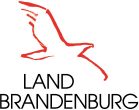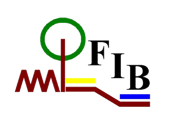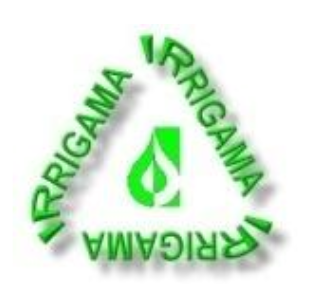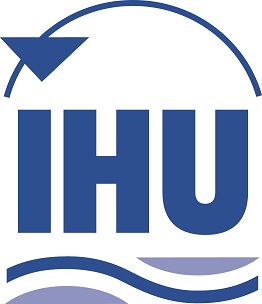Control of additional water use
in crop production –
situational, site-specific and automated
Practical relevance
Brandenburg, with its dry and hot summers, is one of the most climate-sensitive regions in Central Europe.
Already during “normal years” the water supply has a limiting effect on yield and quality, especially in the cultivation of irrigated special crops, field vegetables and root crops.
The current technology only ensures uniform and sufficient irrigation of the total field, without being able to prevent over- and undersupply of individual partial areas.
This promotes unproductive additional consumption of water and energy as well as negative environmental impacts such as soil erosion or increased nutrient yields.
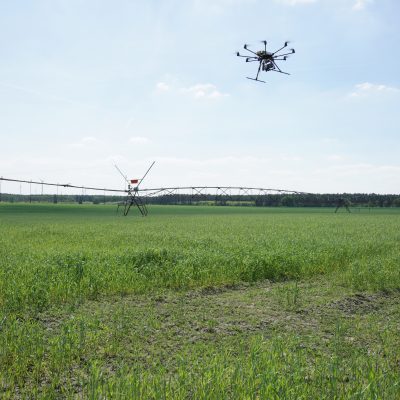
Implementation
In pot experiments and on irrigated farmland in Brandenburg, the determination of the water demand of different plant cultures is tested with the help of thermal imaging cameras.
Algorithms are then developed to convert the thermographic signals into site-specific irrigation information.
Finally, a control unit to be configured automatically and precisely controls the nozzles of large irrigation machines.
Yield and irrigation data for the tested irrigation crop rotations enable cost-benefit analyses under economic and ecological aspects.
The results are continuously published and summarised in recommendations for agricultural enterprises.

project time
08. April 2016 – 31. Dezember 2020
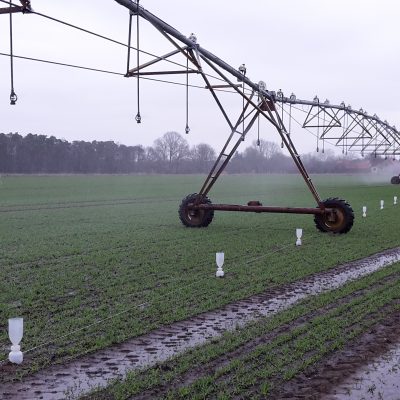
Financiation
This project is financed by the European Agricultural Fund for Rural Development (EAFRD) und Brandenburg / Germany.

